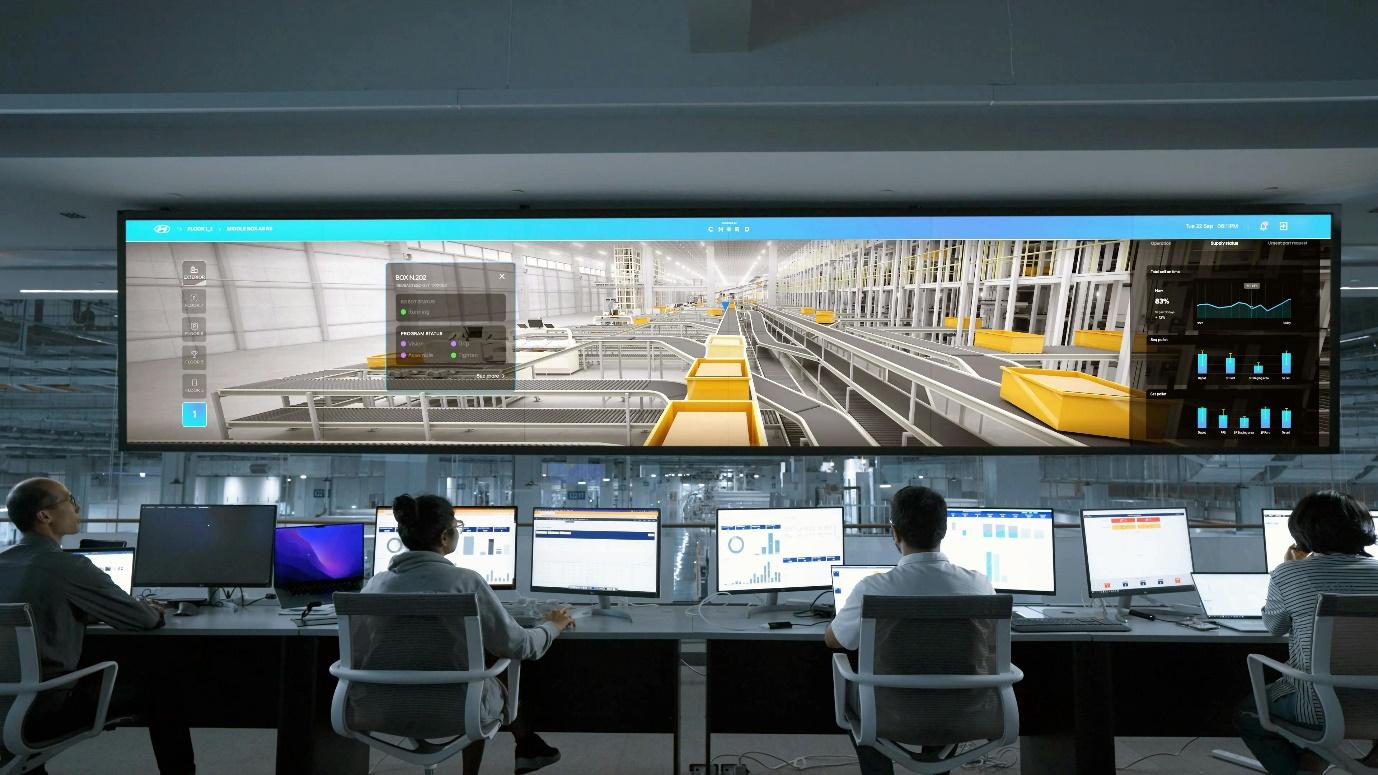What Does a DevOps Engineer Do? Exploring Roles and Responsibilities
What Does a DevOps Engineer Do? Exploring Roles and Responsibilities
Nov 20, 2024
Jithin
Nov 20, 2024


Jithin





What Does a DevOps Engineer Do?
In the rapidly evolving tech landscape, the role of a DevOps engineer has emerged as a cornerstone of successful software development and IT operations. As organizations strive for agility, efficiency, and continuous delivery, understanding what does a DevOps engineer do becomes crucial. This article delves into the roles and responsibilities of a DevOps engineer, shedding light on their significance in modern software development.

What is DevOps?
DevOps is a cultural and professional movement tha t emphasizes collaboration between software developers (Dev) and IT operations (Ops). The goal is to shorten the development lifecycle, increase deployment frequency, and deliver high-quality software. According to the DevOps Institute, organizations that adopt DevOps practices can achieve up to 200 times more frequent deployments than those that do not.
Key Responsibilities of a DevOps Engineer
1. Collaboration and Communication
One of the primary responsibilities of a DevOps engineer is to foster collaboration between development and operations teams. They act as a bridge, ensuring that both teams work together effectively. This involves regular communication, sharing feedback, and aligning goals to enhance productivity and efficiency. Effective communication is vital in ensuring that everyone is on the same page, which ultimately leads to smoother project execution and fewer misunderstandings.

2. Continuous Integration and Continuous Deployment (CI/CD)
DevOps engineers are responsible for implementing CI/CD pipelines. This involves automating the process of integrating code changes, running tests, and deploying applications. By streamlining these processes, they help teams deliver software updates more frequently and reliably. CI/CD practices not only speed up the development cycle but also enhance the quality of the software by allowing for immediate feedback on code changes.
3. Infrastructure as Code (IaC)
DevOps engineers utilize IaC practices to manage and provision infrastructure through code rather than manual processes. This approach allows for consistent and repeatable infrastructure setups, reducing the risk of errors and improving scalability. IaC enables teams to version control their infrastructure, just like they do with application code, which leads to better tracking of changes and easier rollbacks if necessary.

4. Monitoring and Logging
Monitoring applications and infrastructure is crucial for maintaining performance and reliability. DevOps engineers set up monitoring tools to track system health, performance metrics, and user behavior. They analyze logs to identify issues and optimize system performance, ensuring a seamless user experience. Effective monitoring helps in proactive problem detection, allowing teams to address issues before they escalate into major outages.
5. Automation
Automation is at the heart of DevOps practices. DevOps engineers automate repetitive tasks such as testing, deployment, and infrastructure management. This not only saves time but also minimizes human error, leading to more stable and reliable software releases. By automating these processes, teams can focus on more strategic tasks, such as improving features and enhancing user experience.

6. Security Integration
DevOps engineers are increasingly involved in integrating security practices into the development process, often referred to as DevSecOps. They ensure that security measures are implemented at every stage of the software development lifecycle, from coding to deployment. This proactive approach to security helps in identifying vulnerabilities early in the development process, reducing the risk of security breaches in production environments.
7. Cloud Services Management
With the rise of cloud computing, DevOps engineers often manage cloud infrastructure and services. They are responsible for selecting the right cloud solutions, optimizing costs, and ensuring that applications are scalable and resilient in the cloud environment. Understanding cloud services is crucial, as many organizations are moving their operations to the cloud to take advantage of its flexibility and scalability.
8. Performance Optimization
DevOps engineers continuously analyze system performance and identify areas for improvement. They implement best practices to optimize application performance, reduce latency, and enhance user satisfaction.
9. Incident Management and Troubleshooting
When issues arise, DevOps engineers play a critical role in incident management. They quickly diagnose problems, coordinate responses, and implement solutions to minimize downtime and restore services. Effective incident management is essential for maintaining user trust and ensuring that services remain available and reliable.
10. Documentation and Knowledge Sharing
Maintaining clear documentation is essential for effective collaboration and knowledge transfer. DevOps engineers document processes, configurations, and best practices, ensuring that team members can easily access and understand critical information. Good documentation practices help onboard new team members and serve as a reference for existing team members
Types of DevOps Engineer Jobs
DevOps Engineer
Responsibilities: Implementing and managing CI/CD pipelines, automating deployment processes, and ensuring smooth collaboration between development and operations teams.
Skills Required: Proficiency in scripting languages (e.g., Python, Bash), experience with CI/CD tools (e.g., Jenkins, GitLab CI), and knowledge of cloud platforms (e.g., AWS, Azure).
Site Reliability Engineer (SRE)
Responsibilities: Focusing on the reliability and performance of applications, managing system uptime, and implementing monitoring solutions.
Skills Required: Strong programming skills, experience with monitoring tools (e.g., Prometheus, Grafana), and a deep understanding of system architecture.
Release Manager
Responsibilities: Overseeing the software release process, coordinating between development and operations, and ensuring that releases are delivered on time and meet quality standards.
Skills Required: Project management skills, familiarity with release management tools, and strong communication abilities.
Automation Engineer
Responsibilities: Developing scripts and tools to automate repetitive tasks, improving efficiency in deployment and infrastructure management.
Skills Required: Proficiency in automation tools (e.g., Ansible, Puppet, Chef), scripting skills, and knowledge of cloud infrastructure.
Cloud Engineer
Responsibilities: Designing and managing cloud infrastructure, optimizing cloud resources, and ensuring security and compliance in cloud environments.
Skills Required: Expertise in cloud platforms (e.g., AWS, Google Cloud, Azure), knowledge of cloud security practices, and experience with IaC (Infrastructure as Code) tools.
Infrastructure Engineer
Responsibilities: Building and maintaining the underlying infrastructure that supports applications, including servers, networks, and storage systems.
Skills Required: Strong understanding of networking, server management, and experience with virtualization technologies.
What Do DevOps Engineers Do in Practice?
To illustrate the practical aspects of a DevOps engineer's role, let's consider a typical day in their life:
CI/CD Pipeline Management: They monitor the CI/CD pipeline, ensuring that code changes are integrated and deployed smoothly.
Infrastructure Management: DevOps engineers may spend time managing cloud resources, optimizing configurations, and ensuring that infrastructure is scalable.
Incident Response: If an issue arises, they quickly respond to incidents, troubleshoot problems, and implement fixes to minimize downtime.
Documentation: Throughout the day, they document processes and share knowledge with team members to foster collaboration.
Prerequisites for DevOps Engineer
Before starting a career as a DevOps engineer, it's essential to understand the prerequisites for DevOps engineer roles. Here are some key skills and knowledge areas:
Programming Skills: Being good at programming languages such as Python, Ruby, or Java is crucial for automating tasks and developing scripts.
Understanding of Operating Systems: A solid understanding of Linux and Windows operating systems is essential for managing servers and applications.
Familiarity with Cloud Platforms: Knowledge of cloud services like AWS, Azure, or Google Cloud is increasingly important, especially for those interested in AWS DevOps engineer jobs.
Version Control Systems: Being proficient in version control systems like Git is necessary for managing code changes and collaboration.
Containerization and Orchestration: Familiarity with containerization technologies like Docker and orchestration tools like Kubernetes is beneficial for managing applications in a microservices architecture.
How to Become an AWS DevOps Engineer
If you're interested in pursuing a career as an AWS DevOps engineer, here are some steps to guide you:
Learn the Basics: Start by gaining a solid understanding of DevOps principles and practices.
Get Certified: Consider obtaining relevant certifications, such as the AWS Certified DevOps Engineer, to validate your skills and knowledge.
Gain Practical Experience: Work on real-world projects, either through internships or personal projects, to build your portfolio.
Stay Updated: The tech landscape is constantly evolving, so it's essential to stay updated on the latest tools, technologies, and best practices in DevOps.
Conclusion
The role of a DevOps engineer is multifaceted and essential in today’s software development landscape. By promoting collaboration, automating processes, and ensuring security and performance, DevOps engineers help organizations deliver high-quality software faster and more efficiently. Understanding what a DevOps engineer does is crucial for anyone looking to enter this dynamic field.
Ready to kickstart your journey into the world of DevOps? At Skillect, we offer comprehensive courses tailored to help you master DevOps, AWS, and more. With personalized learning paths, hands-on projects, and expert guidance, our programs are designed to equip you with the skills needed for a thriving tech career.
Explore our courses today and join now to build a future-proof career in tech!
What Does a DevOps Engineer Do?
In the rapidly evolving tech landscape, the role of a DevOps engineer has emerged as a cornerstone of successful software development and IT operations. As organizations strive for agility, efficiency, and continuous delivery, understanding what does a DevOps engineer do becomes crucial. This article delves into the roles and responsibilities of a DevOps engineer, shedding light on their significance in modern software development.

What is DevOps?
DevOps is a cultural and professional movement tha t emphasizes collaboration between software developers (Dev) and IT operations (Ops). The goal is to shorten the development lifecycle, increase deployment frequency, and deliver high-quality software. According to the DevOps Institute, organizations that adopt DevOps practices can achieve up to 200 times more frequent deployments than those that do not.
Key Responsibilities of a DevOps Engineer
1. Collaboration and Communication
One of the primary responsibilities of a DevOps engineer is to foster collaboration between development and operations teams. They act as a bridge, ensuring that both teams work together effectively. This involves regular communication, sharing feedback, and aligning goals to enhance productivity and efficiency. Effective communication is vital in ensuring that everyone is on the same page, which ultimately leads to smoother project execution and fewer misunderstandings.

2. Continuous Integration and Continuous Deployment (CI/CD)
DevOps engineers are responsible for implementing CI/CD pipelines. This involves automating the process of integrating code changes, running tests, and deploying applications. By streamlining these processes, they help teams deliver software updates more frequently and reliably. CI/CD practices not only speed up the development cycle but also enhance the quality of the software by allowing for immediate feedback on code changes.
3. Infrastructure as Code (IaC)
DevOps engineers utilize IaC practices to manage and provision infrastructure through code rather than manual processes. This approach allows for consistent and repeatable infrastructure setups, reducing the risk of errors and improving scalability. IaC enables teams to version control their infrastructure, just like they do with application code, which leads to better tracking of changes and easier rollbacks if necessary.

4. Monitoring and Logging
Monitoring applications and infrastructure is crucial for maintaining performance and reliability. DevOps engineers set up monitoring tools to track system health, performance metrics, and user behavior. They analyze logs to identify issues and optimize system performance, ensuring a seamless user experience. Effective monitoring helps in proactive problem detection, allowing teams to address issues before they escalate into major outages.
5. Automation
Automation is at the heart of DevOps practices. DevOps engineers automate repetitive tasks such as testing, deployment, and infrastructure management. This not only saves time but also minimizes human error, leading to more stable and reliable software releases. By automating these processes, teams can focus on more strategic tasks, such as improving features and enhancing user experience.

6. Security Integration
DevOps engineers are increasingly involved in integrating security practices into the development process, often referred to as DevSecOps. They ensure that security measures are implemented at every stage of the software development lifecycle, from coding to deployment. This proactive approach to security helps in identifying vulnerabilities early in the development process, reducing the risk of security breaches in production environments.
7. Cloud Services Management
With the rise of cloud computing, DevOps engineers often manage cloud infrastructure and services. They are responsible for selecting the right cloud solutions, optimizing costs, and ensuring that applications are scalable and resilient in the cloud environment. Understanding cloud services is crucial, as many organizations are moving their operations to the cloud to take advantage of its flexibility and scalability.
8. Performance Optimization
DevOps engineers continuously analyze system performance and identify areas for improvement. They implement best practices to optimize application performance, reduce latency, and enhance user satisfaction.
9. Incident Management and Troubleshooting
When issues arise, DevOps engineers play a critical role in incident management. They quickly diagnose problems, coordinate responses, and implement solutions to minimize downtime and restore services. Effective incident management is essential for maintaining user trust and ensuring that services remain available and reliable.
10. Documentation and Knowledge Sharing
Maintaining clear documentation is essential for effective collaboration and knowledge transfer. DevOps engineers document processes, configurations, and best practices, ensuring that team members can easily access and understand critical information. Good documentation practices help onboard new team members and serve as a reference for existing team members
Types of DevOps Engineer Jobs
DevOps Engineer
Responsibilities: Implementing and managing CI/CD pipelines, automating deployment processes, and ensuring smooth collaboration between development and operations teams.
Skills Required: Proficiency in scripting languages (e.g., Python, Bash), experience with CI/CD tools (e.g., Jenkins, GitLab CI), and knowledge of cloud platforms (e.g., AWS, Azure).
Site Reliability Engineer (SRE)
Responsibilities: Focusing on the reliability and performance of applications, managing system uptime, and implementing monitoring solutions.
Skills Required: Strong programming skills, experience with monitoring tools (e.g., Prometheus, Grafana), and a deep understanding of system architecture.
Release Manager
Responsibilities: Overseeing the software release process, coordinating between development and operations, and ensuring that releases are delivered on time and meet quality standards.
Skills Required: Project management skills, familiarity with release management tools, and strong communication abilities.
Automation Engineer
Responsibilities: Developing scripts and tools to automate repetitive tasks, improving efficiency in deployment and infrastructure management.
Skills Required: Proficiency in automation tools (e.g., Ansible, Puppet, Chef), scripting skills, and knowledge of cloud infrastructure.
Cloud Engineer
Responsibilities: Designing and managing cloud infrastructure, optimizing cloud resources, and ensuring security and compliance in cloud environments.
Skills Required: Expertise in cloud platforms (e.g., AWS, Google Cloud, Azure), knowledge of cloud security practices, and experience with IaC (Infrastructure as Code) tools.
Infrastructure Engineer
Responsibilities: Building and maintaining the underlying infrastructure that supports applications, including servers, networks, and storage systems.
Skills Required: Strong understanding of networking, server management, and experience with virtualization technologies.
What Do DevOps Engineers Do in Practice?
To illustrate the practical aspects of a DevOps engineer's role, let's consider a typical day in their life:
CI/CD Pipeline Management: They monitor the CI/CD pipeline, ensuring that code changes are integrated and deployed smoothly.
Infrastructure Management: DevOps engineers may spend time managing cloud resources, optimizing configurations, and ensuring that infrastructure is scalable.
Incident Response: If an issue arises, they quickly respond to incidents, troubleshoot problems, and implement fixes to minimize downtime.
Documentation: Throughout the day, they document processes and share knowledge with team members to foster collaboration.
Prerequisites for DevOps Engineer
Before starting a career as a DevOps engineer, it's essential to understand the prerequisites for DevOps engineer roles. Here are some key skills and knowledge areas:
Programming Skills: Being good at programming languages such as Python, Ruby, or Java is crucial for automating tasks and developing scripts.
Understanding of Operating Systems: A solid understanding of Linux and Windows operating systems is essential for managing servers and applications.
Familiarity with Cloud Platforms: Knowledge of cloud services like AWS, Azure, or Google Cloud is increasingly important, especially for those interested in AWS DevOps engineer jobs.
Version Control Systems: Being proficient in version control systems like Git is necessary for managing code changes and collaboration.
Containerization and Orchestration: Familiarity with containerization technologies like Docker and orchestration tools like Kubernetes is beneficial for managing applications in a microservices architecture.
How to Become an AWS DevOps Engineer
If you're interested in pursuing a career as an AWS DevOps engineer, here are some steps to guide you:
Learn the Basics: Start by gaining a solid understanding of DevOps principles and practices.
Get Certified: Consider obtaining relevant certifications, such as the AWS Certified DevOps Engineer, to validate your skills and knowledge.
Gain Practical Experience: Work on real-world projects, either through internships or personal projects, to build your portfolio.
Stay Updated: The tech landscape is constantly evolving, so it's essential to stay updated on the latest tools, technologies, and best practices in DevOps.
Conclusion
The role of a DevOps engineer is multifaceted and essential in today’s software development landscape. By promoting collaboration, automating processes, and ensuring security and performance, DevOps engineers help organizations deliver high-quality software faster and more efficiently. Understanding what a DevOps engineer does is crucial for anyone looking to enter this dynamic field.
Ready to kickstart your journey into the world of DevOps? At Skillect, we offer comprehensive courses tailored to help you master DevOps, AWS, and more. With personalized learning paths, hands-on projects, and expert guidance, our programs are designed to equip you with the skills needed for a thriving tech career.
Explore our courses today and join now to build a future-proof career in tech!
